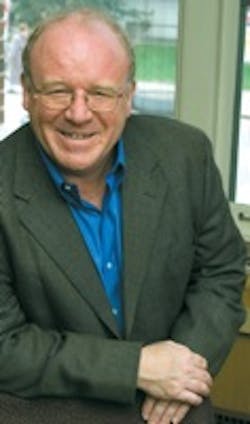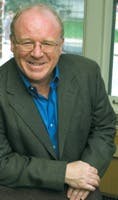The right place for fluid power education
We must resist overspecialization. Specialized training provides the short-term benefit of intimate familiarity with current technology, but does not provide the needed tools for long-term change. The basic approaches of fluid power have changed little in decades, but a radical transformation is needed if it is to compete with other technologies. For this task, a cadre of engineers with a broad fundamental education is needed. In the words of the late Professor Henry Paynter of M.I.T., "Specialization is the bane of technological progress."
This is not to say that all is well; far from it. Fluid power is barely mentioned in most mechanical engineering departments, and most mechanical engineering graduates never seriously consider a career in fluid power. One reason for the lack of fluid power exposure is that professors are not familiar with it. It has been more than a generation since the heyday of fluid power research in
American universities, and research activity has continued at a low level ever since. This situation will change profoundly with the creation of the Center for Compact and Efficient Fluid Power (CCEFP). CCEFP research will expose both undergraduate and graduate students to fluid power and will inevitably influence the curriculum. CCEFP member universities are Georgia Tech, Illinois, Milwaukee School of Engineering, Minnesota, North Carolina A&T, Purdue, and Vanderbilt.
A key goal is to promote fluid power so that every mechanical engineering graduate in the U.S. is familiar with it. The CCEFP will develop approaches so that fluid power can be introduced in required courses such as fluid mechanics and system dynamics and control. It will also develop fluid power lab experiments that are novel and interesting, to be replicated in other universities. Further, those who choose to specialize in fluid power must have access to the needed courses through electives. At the University of Minnesota, one in six mechanical engineering seniors chooses a semester lab devoted to fluid power. Many find employment in the fluid power industry. We at Minnesota are not alone; the CCEFP universities and others are developing graduate and undergraduate courses to educate mechanical engineers with an interest in fluid power.
Fluid power is an area where novel, highimpact research is possible. It has been more than a decade since an Engineering Research Center in mechanical engineering has been founded. Mechanical engineering departments around the country will look to us to set the new direction. I believe they will welcome our efforts to reintroduce fluid power into mechanical engineering.
I will participate with others in a session on fluid power education at the upcoming NFPA Educator/Industry Summit to be held on August 21-22 (see www.nfpa.com for details). I invite everyone who is interested in fluid power education to attend the summit. Fluid power is at a crossroads; our decisions about education will have profound long-term effects.
Kim A. Stelson professor and director NSF Engineering Research Center for Compact and Efficient Fluid Power [email protected]


